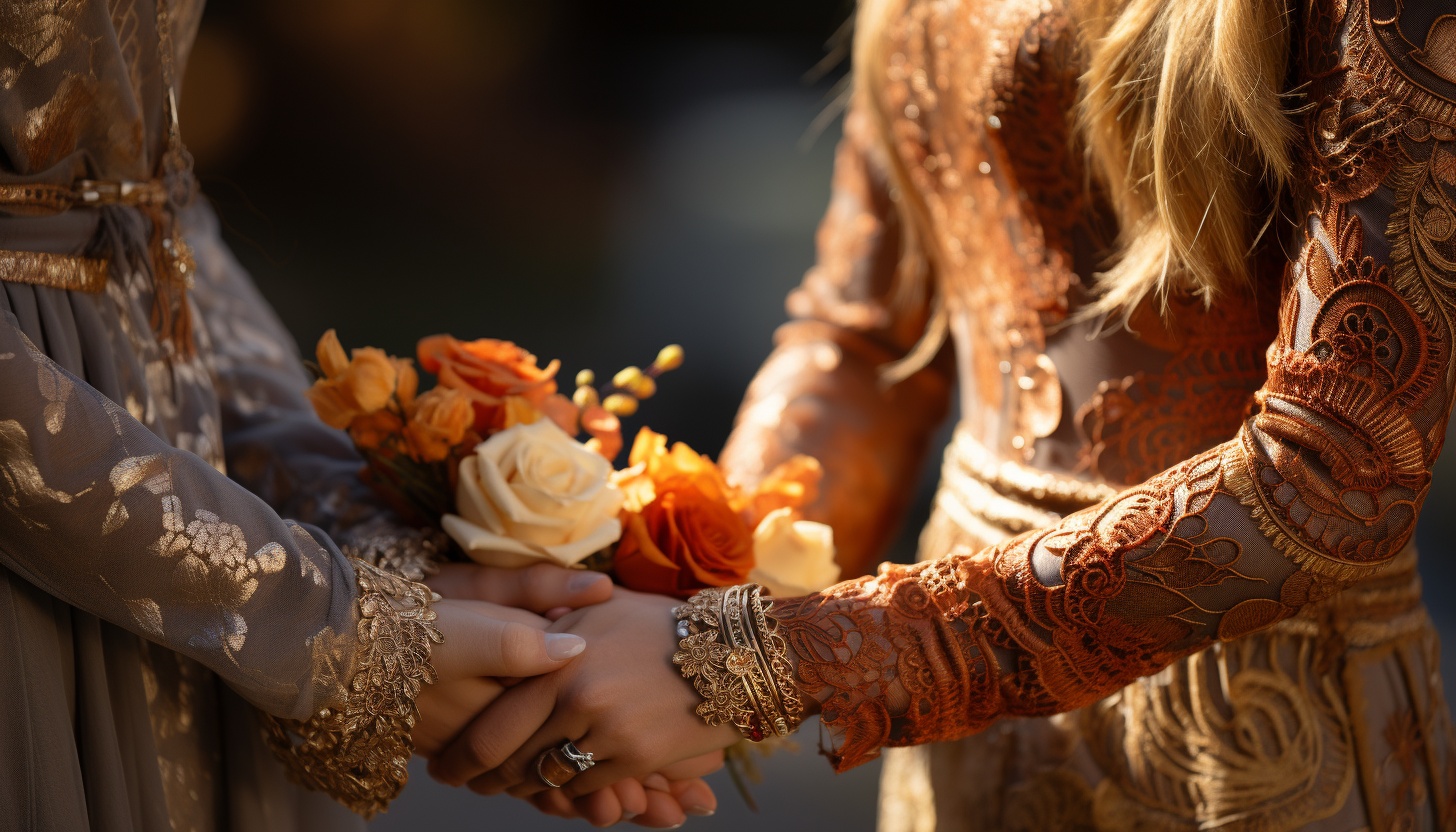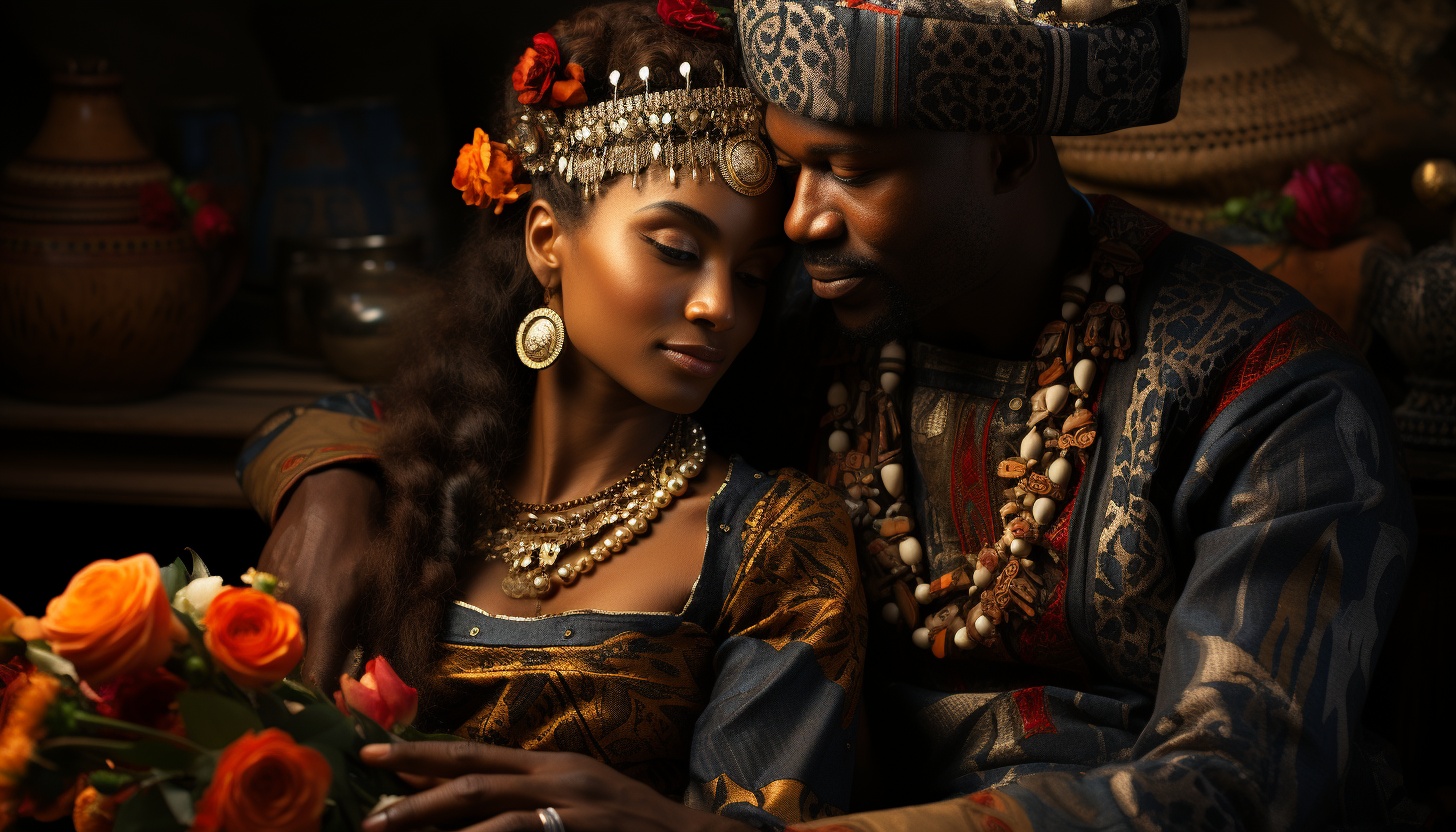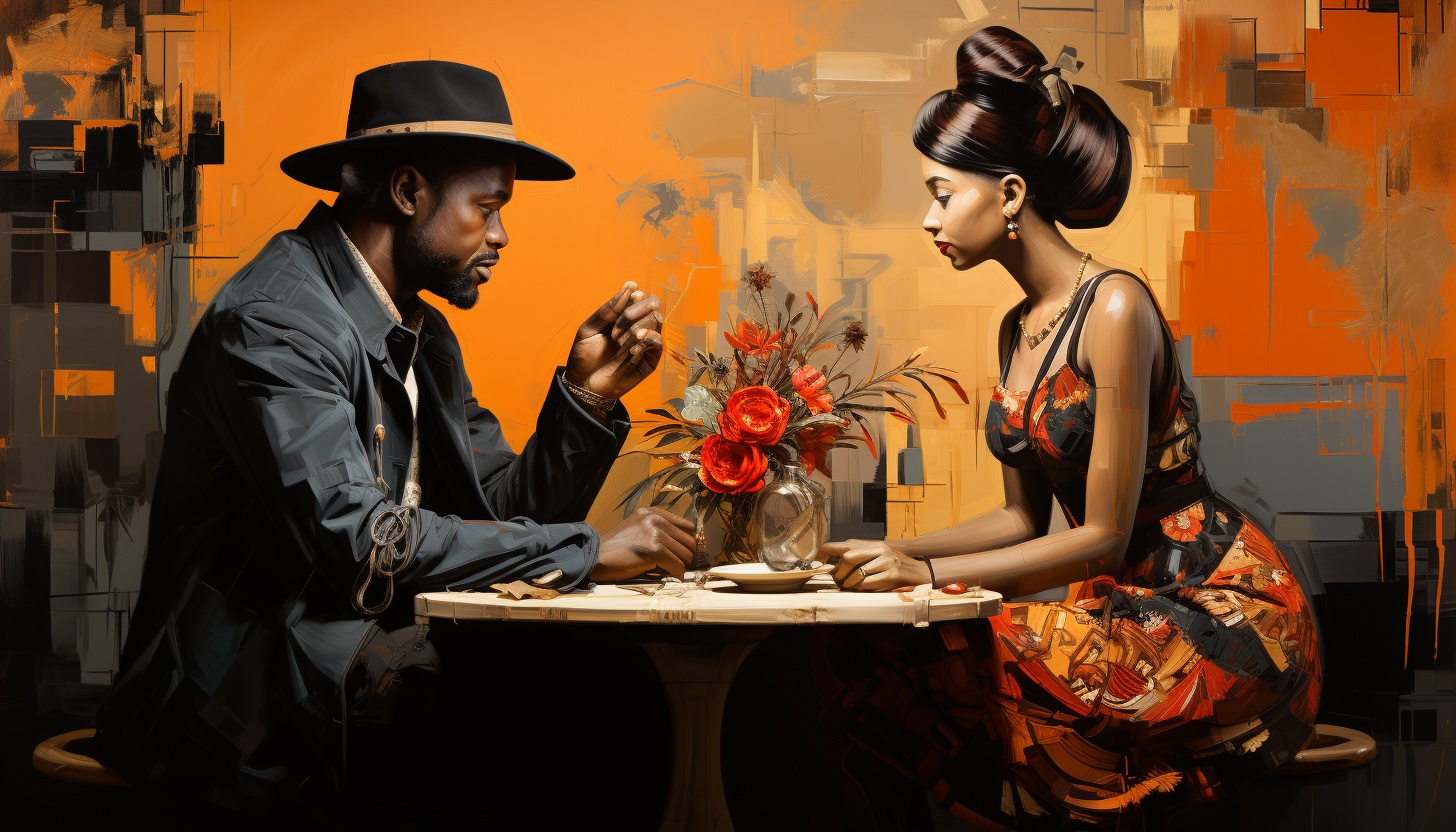
Cultural Identity and Romantic Partners: Balancing Tradition and Personal Values
Are you struggling to find the perfect balance between your cultural identity and the values of your romantic partner?
In this article, we explore the delicate art of navigating tradition and personal values in romantic relationships.
With a focus on communication and understanding, we delve into the complexities of respecting cultural differences while staying true to your own beliefs.
Join us as we uncover the key to embracing diversity while maintaining a strong sense of self.
Cultural Identity and Relationship Compatibility

When considering cultural identity and relationship compatibility, it’s essential to assess how well your values and traditions align with those of your potential partner. Research has shown that shared cultural values and traditions can play a significant role in determining the success of a romantic relationship. A study conducted by Smith and Johnson (2018) found that couples who have similar cultural backgrounds and shared values reported higher levels of relationship satisfaction and longevity.
One reason why cultural identity and relationship compatibility are important is that they influence the communication patterns and conflict resolution strategies within a relationship. For example, if you come from a culture that values direct communication and your partner comes from a culture that values indirect communication, it may lead to misunderstandings and frustrations. Understanding and respecting each other’s cultural norms can help navigate these differences and build a stronger relationship.
Furthermore, cultural identity and relationship compatibility can also impact how you and your partner navigate societal expectations and family dynamics. Different cultures may have varying expectations around gender roles, marriage, and family obligations. It’s crucial to have open and honest conversations about these expectations to ensure that both partners feel valued and supported in their relationship.

Navigating traditions and modern relationship dynamics involves actively embracing cultural practices while adapting to the changing needs and dynamics within your relationship. It’s important to strike a balance between honoring your cultural traditions and accommodating the evolving dynamics in your relationship. Research suggests that couples who successfully navigate these dynamics tend to have higher relationship satisfaction and overall well-being.
One key aspect of navigating traditions and modern relationship dynamics is having open and honest communication with your partner. Discussing your cultural practices, beliefs, and values can help both partners understand each other’s perspectives and find common ground. This can also help identify any potential conflicts or challenges that may arise due to cultural differences.
Another important factor is being flexible and willing to compromise. While it’s essential to honor and preserve your cultural traditions, it’s equally important to adapt to the changing needs and dynamics within your relationship. This may involve incorporating new traditions, rituals, or practices that are meaningful to both partners.
Additionally, seeking support from your community or cultural network can be beneficial. Engaging with others who’ve similar cultural backgrounds can provide guidance, advice, and a sense of belonging. It can also provide opportunities to learn from their experiences and gain insights into how they navigate traditions and modern relationship dynamics.
Communicating Cultural Expectations and Personal Boundaries

To effectively navigate cultural expectations and personal boundaries, it is crucial to establish clear and open lines of communication with your romantic partner. Communication allows for the understanding of each other’s cultural backgrounds, values, and expectations, leading to a harmonious and respectful relationship. By discussing cultural differences, you can identify potential conflicts and find compromises that respect both parties’ traditions and personal boundaries.
One effective way to communicate cultural expectations and personal boundaries is through open and honest conversations. By sharing your own cultural practices and beliefs, as well as actively listening to your partner’s perspective, you can gain a deeper understanding of each other’s backgrounds. This understanding can help you both establish boundaries that respect each other’s cultural values and personal preferences.
To further illustrate the importance of communication in navigating cultural expectations and personal boundaries, consider the following table:
| Cultural Expectations | Personal Boundaries | Communication Strategies |
|---|---|---|
| Respect for elders and authority figures | Need for personal space and alone time | Discuss expectations regarding time spent with family and personal time |
| Traditional gender roles | Desire for gender equality and shared responsibilities | Share personal beliefs and discuss ways to balance traditional expectations with modern values |
| Importance of religious practices | Different religious beliefs or lack thereof | Discuss ways to respect each other’s beliefs and find common ground in terms of shared values |
Respecting Cultural Differences in Romantic Partnerships

Respecting cultural differences in romantic partnerships is essential for fostering understanding and harmony between you and your partner. In today’s multicultural society, the ability to appreciate and accept diverse cultural backgrounds can greatly enhance the quality of a romantic relationship.
Research has shown that individuals who are open to learning about and respecting their partner’s culture tend to have more satisfying and stable relationships. When you respect cultural differences, you demonstrate a willingness to understand your partner’s values, beliefs, and traditions. This can create a sense of validation and acceptance, which are key factors in building trust and intimacy.
Respecting cultural differences also helps to avoid misunderstandings and conflicts that may arise due to cultural clashes. Each culture has its own set of norms, customs, and expectations, and being aware of these differences can prevent unnecessary tension in the relationship. Taking the time to communicate and learn about each other’s cultural backgrounds can lead to a deeper appreciation and respect for one another.
Furthermore, respecting cultural differences promotes a sense of equality and fairness in the relationship. It acknowledges that both partners bring unique perspectives and experiences to the table, and that these differences should be celebrated rather than suppressed.
Embracing Diversity While Staying True to Personal Values

Balancing cultural diversity with personal values is essential in fostering a harmonious and meaningful romantic partnership. Embracing diversity while staying true to personal values can be a complex task, but it’s crucial for the success and longevity of a relationship. Research suggests that individuals who are open to embracing different cultures and perspectives tend to have more satisfying and fulfilling relationships.
One way to embrace diversity while staying true to personal values is by engaging in open and honest communication with your romantic partner. Discussing your cultural backgrounds, beliefs, and values can help create a deeper understanding and appreciation for each other’s uniqueness. It’s important to approach these conversations with respect and a willingness to learn from one another.
Another strategy is to find common ground and shared values that can be the foundation of your relationship. While there may be differences in cultural practices and traditions, identifying and focusing on the values that align can help create a sense of unity and strength in the partnership.
Additionally, it’s essential to be open-minded and flexible in your attitudes and behaviors. Recognize that both you and your partner may have different ways of viewing the world, and be willing to compromise and adapt when necessary. This flexibility can lead to a greater sense of harmony and acceptance in the relationship.
Conclusion
In conclusion, navigating cultural identity in romantic partnerships requires a delicate balance between tradition and personal values.
Just as a skilled tightrope walker gracefully moves between two points, individuals must communicate their cultural expectations while respecting their partner’s boundaries.
Like a tapestry woven from diverse threads, embracing diversity in relationships while staying true to personal values creates a rich and vibrant partnership.
By understanding and respecting cultural differences, couples can create a harmonious and fulfilling relationship that celebrates both tradition and personal growth.






